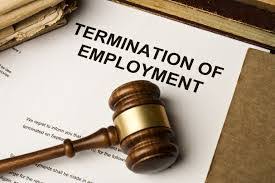


In a recent Supreme Court judgment, the bench comprising Justices Pamidighantam Sri Narasimha and Pankaj Mithal addressed the procedural violations in the termination of a long-absent employee, T.P. Murali, by Kerala Agricultural University. The court dismissed the University's special leave petition, affirming that due process was not followed in terminating the respondent, despite his absence exceeding the stipulated leave period.
Case Background
T.P. Murali had joined Kerala Rural College as an Right hand Teacher in 1988. In 1999, he took a Take off Without Remittance (LWA) for 20 a long time to work within the Joined together States. His take off terminated in September 2019, but due to wellbeing issues and travel limitations amid COVID-19, he fizzled to continue obligations on time. Consequently, the University terminated his services.
Murali challenged this termination in the Kerala High Court, where a single judge upheld the University's decision. However, the Division Bench later overturned this ruling, quashing the termination order on procedural grounds, though denying his reinstatement as he had already attained superannuation.
Procedural Lapse in Disciplinary Inquiry The pivotal issue in this case was the procedural lapse committed by the University in handling the disciplinary proceedings.
However, no such satisfaction was documented in this case, which led the Division Bench to conclude that due process was not followed.
"No material at any stage has been brought on record to establish that any such satisfaction was recorded before appointing an inquiry committee and passing of the order of termination by the Vice Chancellor on the basis of the inquiry report."
Key legal Principles
The Court also took note of the respondent’s bona fide intent to return to duty: "The respondent had expressed his intention to resume his duties on the expiry of the leave period, which he could not do on account of unprecedented circumstances of his bad health and restriction on travel due to COVID-19."
The evidence provided by Murali, including emails and medical documents, further supported his inability to return on time, which the Court found to be genuine.
Conclusion
The Supreme Court's dismissal of the special leave petition underscores the critical need for institutions to strictly adhere to procedural requirements when handling disciplinary inquiries. Even in cases where the facts may appear straightforward, the failure to follow due process can render disciplinary actions void.
In this instance, the Kerala Agricultural University’s oversight in not recording a prima facie satisfaction before proceeding with the termination was enough to tilt the case in Murali’s favor. This judgment serves as a reminder of the courts' vigilance in upholding procedural fairness in employment matters, particularly when it comes to safeguarding the rights of employees under statutory rules.
Click Here to: Download/View Related File
TAGS: Supreme Court Kerala Agricultural University T.P. Murali procedural fairness Leave Without Allowance disciplinary inquiry termination Kerala Civil Services Rules Rule 15 superannuation procedural lapse statutory procedure COVID-19 health issues prima facie satisfaction employment law.